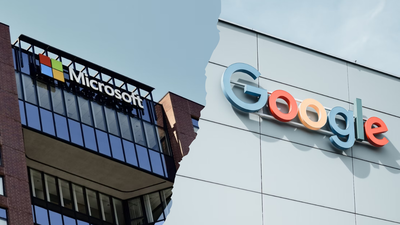
Google has formally lodged a complaint with the European Commission regarding what it describes as Microsoft’s anti-competitive practices surrounding its Azure cloud platform. This move highlights ongoing tensions in the competitive landscape of cloud computing, particularly as Google, along with Amazon Web Services (AWS), seeks to challenge Microsoft’s dominant position in the market.
At the heart of Google’s complaint is the assertion that Microsoft is leveraging its widely-used Windows Server operating system to maintain a stronghold over customers, effectively locking them into Azure. Google Cloud Vice President Amit Zavery emphasized that customers who wish to run Windows Server on competing cloud services face a staggering 400 percent markup compared to those who use Azure. This significant financial barrier raises concerns about fair competition in the cloud space.
Furthermore, Zavery pointed out that users of rival cloud platforms receive security updates more slowly and with more limitations than those utilizing Azure. This disparity not only affects the operational capabilities of businesses but also raises potential security concerns, making it harder for companies to choose alternatives without compromising on crucial support and updates.
Supporting Google’s claims, a 2023 study by the cloud services organization CISPE revealed that European businesses and public sector entities are incurring licensing penalties with Microsoft amounting to nearly 1 billion euros annually. This figure illustrates the financial strain that Microsoft’s licensing practices place on organizations that may wish to explore options outside of Azure.
Earlier this year, Microsoft settled an antitrust complaint regarding its cloud computing licensing practices with CISPE for 20 million euros, which helped it avoid an EU investigation. However, this settlement was limited and did not address the concerns raised by Google and AWS, leaving them to voice their criticism of Microsoft’s continued practices.
Google’s complaint also touches on its concerns over Microsoft’s Teams collaboration application. The tech giant alleges that Microsoft is forcing customers to use Teams, even when they might prefer other alternatives, suggesting a broader strategy aimed at integrating and locking in users to its ecosystem. This behavior, Google argues, mirrors the tactics being employed with Azure.
As the EU continues to scrutinize big tech companies over anti-competitive behavior, Google’s complaint may signal the beginning of a larger regulatory challenge for Microsoft. The outcome could have significant implications for the cloud market, influencing how companies structure their services and how they interact with customers across various platforms.
Overall, this situation underscores the complexities of competition in the tech industry, where market leaders must navigate not only business strategies but also the growing demands for fairness and transparency from regulators and consumers alike.